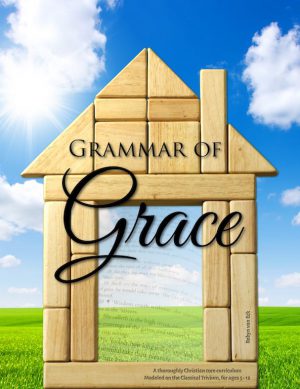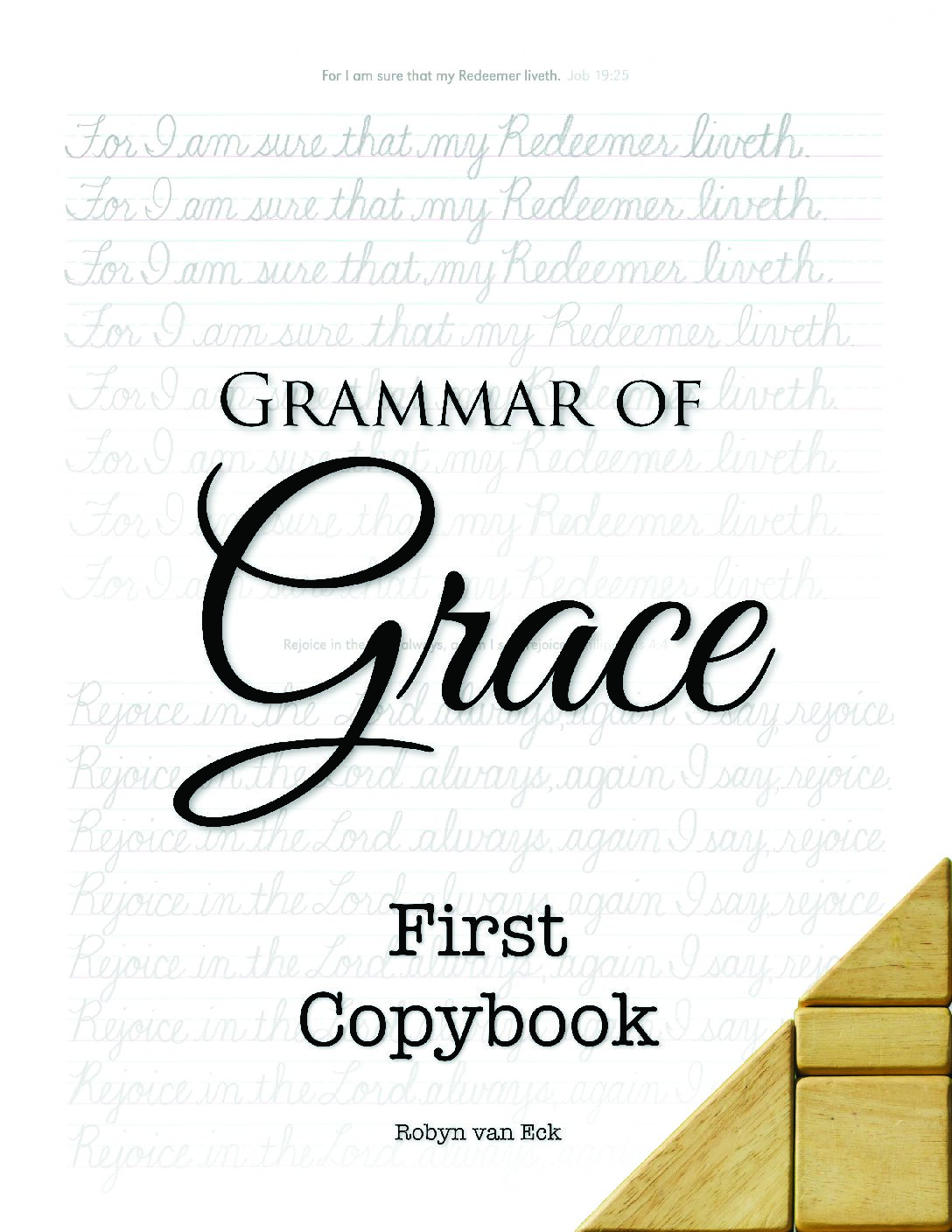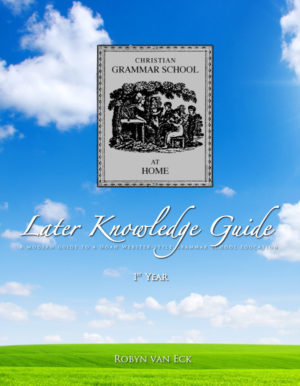Photo by Kari Shea on Unsplash
Kindergarten
My son has not started kindergarten; wanted to see if this was an option for us to do as homeschool; please email me more information, and do you guys also have pre-k information to do at home?
Grammar of Grace core curriculum is all-ages, so you can start it any time! Most families who use Grammar of Grace start at around age 5, but the younger ones listen in and end up learning a lot of the memory work, too, without even trying. For pre-k, I recommend letting them play quietly while listening to mom/older siblings recite the memory work. They learn a lot just by listening; God designed the little ones to learn that way! I wouldn’t pressure them for results, though; just keep exposing them to the awesome material, and let it work wonders in their minds. All of a sudden, one day, they totally shock you with all they’ve been picking up, without even trying.
There’re more details, a sample download, and a short video on this page.
As for age 5, yes, you can definitely use this with him. I’ve started all of my boys in this when they were age 5 (so five of them have done it, now!). Just don’t overdo it with him; he’ll get really good at memorizing it all in a couple of years; for now, just keep repeating everything for him, and see what he does with it. In a couple of weeks, he’ll really surprise you!!!
Writing
Subject: Grammar
I am very interested in your curriculums. I will begin homeschooling my daughter for her 6th grade year. She is a very strong reader, and has a wonderful ability to free write fiction stories. I would like to be able to instruct her and guide her writing. Would you please be able to offer something that could help.
Grammar of Grace is an all-encompassing curriculum, and, yes, it is excellent for teaching writing skills. It doesn’t approach teaching writing the way most of us are used to, coming out of our modern schooling, so it might seem like you’re not teaching “writing”, but oh my goodness, it is!
In our program, the students learn writing, first, by reading great writing. Not easy reading, not one style of writing, but many styles of complex, challenging reading.
Second, they learn writing through copywork. It will seem like this isn’t “doing” anything. But it is.
Third, they learn writing through modeling. For every single reading assignment, the students are instructed to write a summary. With the reading assignment in the forefront of his mind, the student models the style of the great author, and learns many different styles of excellent writing.
Fourth, they have brief free-writing assignments each week, of journaling and letter writing. (This is to ensure that students who are not already doing free-writing on their own, are doing some of this.)
Finally, we shore up all of the fundamentals using Noah Webster’s Blue Back Speller, an English grammar text, and high school Latin. These have a profound impact on the student’s technical ability.
If you want to go with our course, you would need Grammar of Grace core curriculum, the 1st Year Later Knowledge Guide, and the Foreign Languages CD Bundle. There is a list of the full materials needed for the 1st Year Later Knowledge Guide here. Several of the additional materials are also available in our store.
Not sure what books have been in your daughter’s literary “diet” til now, but I’ll share something I’ve noticed over these few years… We’ve seen quite a few folks switch to this program at just the same age as your daughter, coming straight out of public school or another modern education curriculum. We find that good readers can be especially challenged at the first, because they are used to reading fast—because modern books for youth are very simple, and the reader can fly through them and understand it all without any thoughtfulness… But older books—the quality, literary books we use in the later knowledge guides—require thinking, which these students have generally not been trained to do while reading. Their parents have to put a little extra effort into teaching them to slow down, look up words they don’t understand, and read paragraphs more than once to understand what the author is saying.
These old-fashioned methods take promising writers from good to great!!
Ebooks
I’m a homeschooling mum in Ethiopia doing missions. Would like to get an e-copy of.your prep year later knowledge book. I’m sure you don’t ship all the way to Ethiopia. Please assist..
We do not have ebooks available for our books at this time. 🙁 But yes, we do ship worldwide, and we keep the shipping rate low to make it feasible—especially for missionaries just like you! We charge $24.99 for international shipping as a flat rate, even though the postage is more like $50-60 on our end, and international orders over $250 ship for free. 🙂
We are travelling back to Kenya in a bit and probably back shortly afterwards, so the mailing may not work very well because we are not so sure of our timelines. Plus we move a lot so we have found soft copies to be very convenient. Is there another grammar curriculum you could recommend that would enable us to purchase a soft copy?
I don’t know of any other curriculum doing old-fashioned grammar school like this… That’s the story of what drove us to put GOG together; it seemed everyone was talking about how much better education used to be, but no curriculum was actually doing it—either they offer the old approach but with worldly content, or the old Christian content but with modern methods.
But also—and please forgive me if this is not helpful, because I know very little about what you’re looking for, for your children!—but you might think about this:
The old-fashioned approach centers on physical schoolwork—reading books, writing out summaries by hand, journaling, copywork, etc. The physical (kinesthetic) side of education—holding a physical book in one’s hand, and writing out sentences and paragraphs and numbers with pencil and paper, have been shown to make a big difference in helping children learn. I think it’s because God designed us to learn that way, and we even see it in how he communicates with us—through the written word, black ink on white paper.
I hadn’t thought of stuff like that when my children were younger; I picked that up along the way, so I’m just sharing it, in case that’s the sort of thing you’re looking for. If you’re looking for that old-fashioned approach, then you can probably get away with having them read some of their books through ebooks, because of necessity, but you’ll want to use physical books and papers, as far as you are able, even though it’s more trouble.
Thanks for dropping by; please keep us in prayer!
Recommended Resources
-

Grammar of Grace
$89.00 – $148.00 Select options This product has multiple variants. The options may be chosen on the product page -
Sale!

1st Year Later Knowledge Lamplighter Bundle
Original price was: $106.00.$90.10Current price is: $90.10. Add to cart -

Grammar of Grace First Copybook
$15.00 Add to cart


